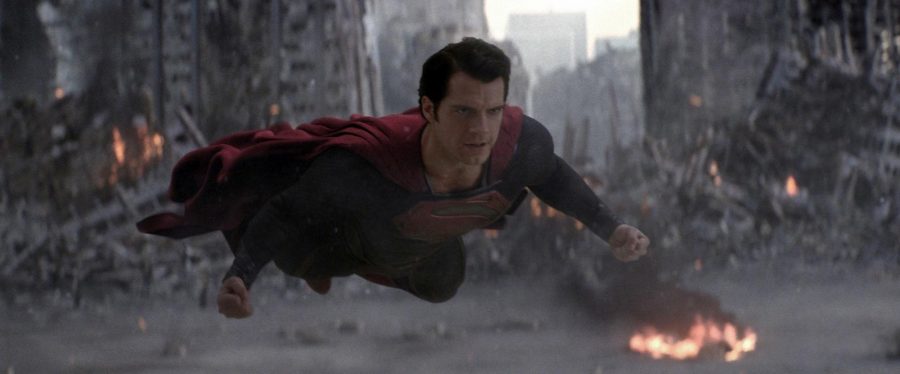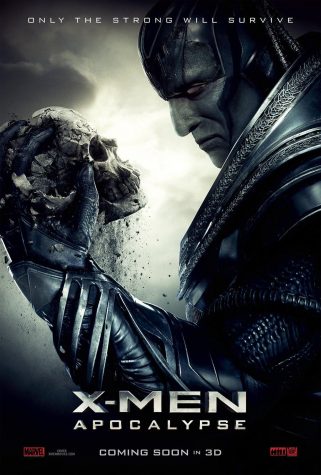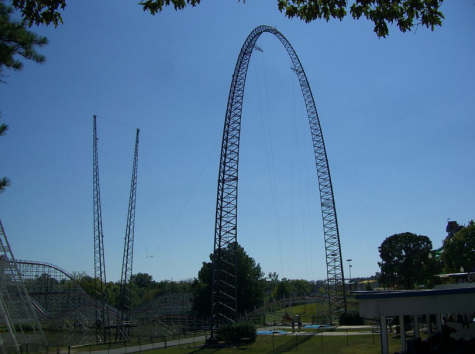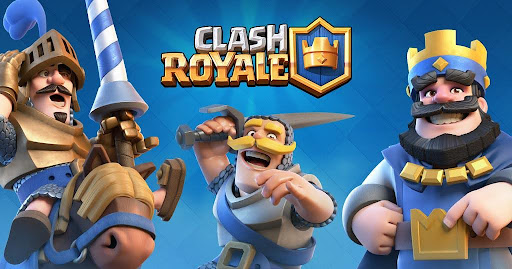Superheroes devalue human life
photo via aceshowbiz.com under Creative Commons license
As if he hadn’t already caused enough destruction, Superman prepares to toss Zod through a few more buildings.
Alec: Avengers: Age of Ultron was released in theaters this past weekend after a three year wait since its predecessor. Just as the first one, it is, indeed, a great deal of fun. But with this latest stretch of comic book movies, there’s a trend that’s been quite evident, and it is that of the major loss of innocent lives. Though a large portion of these deaths are never shown, their predominant weight is unavoidable and can completely shift the overall experience one may have while watching these movies.
Hayk: The new Avengers movie seems absolutely breathtaking indeed, for someone who hasn’t seen it. The action is fast paced with tons of mind blowing fun. Yet it is impossible to ignore that there are many deaths of innocent people in the movie. Still, this is of no real importance. The movie is about the superheroes fighting a killer robot and saving the world. So what if a bunch of people die? After all this is an escapist fiction. It is meant to entice people into an unreal world where we can dream of mythological heroes. Yes, when applying real life morality to such movies, the death toll of civilians can get depressing, but the main point of such movies is to leave behind such petty morality and divulge into the simpler times.
Alec: In defense to Age of Ultron, the film occasionally does focus on how these heroes will go out of their way in order to protect the lives of innocent civilians, something the original film almost never did. In the first Avengers film, the heroes seem to have no problem with the fact that alien ships are crashing into buildings full of people and/or highly populated areas.
Hayk: Once more, the death toll matters little. The first film’s focus was teamwork amongst completely different people in face of a common threat. The focus is not the death of pointless people. The concept of escapist fiction is to divulge into a power fantasy and enjoy the story and ignore the little poignant details. Worrying about the civilians in Avengers or Avengers: Age of Ultron is like worrying about the bystanders in the video game Grand Theft Auto 5. The focus is to engross the viewer into the story and characters, the rest is simply dressing.
Alec: Another film that has particularly no regard for humanity is Zack Snyder’s Man of Steel. Websites such as Buzzfeed have done heavy research on the film and estimated that a total of 250,000 lives were lost, 133,000 were either injured or missing and over $2 trillion worth of property damage was caused. When watching the film, one can’t help but focus on just how much destruction occurs.
Hayk: Getting such precise numbers from Buzzfeed only goes to show the website’s lack of anything serious to do. The death toll was actually important in Man of Steel. The film was about an origins of a superhero, who is only now learning the ropes. The death of all those people only ensures that in the future Superman will be more careful, just like how him killing General Zod, the villain of the movie, serves to be is moral compass for any future conflicts. The death of the hundreds of thousands of people serves as the motivation behind Superman, just as the death of Bruce Wayne’s parents is the motivation behind Batman.
Alec: Yes, Superman is an alien and doesn’t have any personal or emotional connection with the inhabitants of Earth, but that doesn’t justify the massive devastation he causes. What makes it even worse is how contradictory his intentions are. In one instance, he proclaims to Zod that the people of Earth don’t deserve to die, which he then follows by smashing Zod into a collection of buildings that were more than likely filled with people.
Hayk: The reason why Superman rams Zod into buildings without any second thought is because he is new at this. He mean to save people, but ultimately in his quest to fight a foe far more experience he inevitably end up harming some people. A very similar case is in the film Kingsman: Secret Service. In this movie there is a scene involving a building full of people killing each other while under the influence of a violence-triggering virus. These deaths are used to highlight the threat of the villain, not to be focused on as a horrid event. Similarly, the large number of deaths in Man of Steel and Avengers highlight the threat posed by their respective villains.
Alec: It’s almost impossible to avoid the sheer obliteration Metropolis faces during the climax of Man of Steel. During the final battle between Superman and Zod, the two stand in this large, empty area that was once full of buildings, but has now been reduced to rubble. It’s an honest tragedy just seeing how much has been destroyed and how many lives must have been lost.
Hayk: Mass murder is a horrible thing in real life, ture. And there are many films that discuss the terror of mass murder. Movies such as The Boy in the Striped Pajamas or Schindler’s List cover this topic to its core. But films like Avengers, Man of Steel and Kingsman: Secret Service are not meant to focus on deaths of innocents. Here these deaths are meant to emphasize the struggle of the heroes and the threat of the villains.
Alec: Another prevalent theme in the film is its 9/11-type imagery. One of the main events in the climax involves a large plane carrying a bomb flying into a building. Furthermore, there are multiple scenes of people buried under the rubble of said building, and others, scrambling to escape. These visuals, as well as the essential extermination of any human in the area of action, reduce the film’s overall fun.
Hayk: The scene is truly heart wrenching, but it is meant to. Except its emotional weight isn’t meant to highlight the loss of human life, but instead the epic struggle between the protagonists and the antagonists. Great conflict requires great stakes. These stakes are what give weight to the movie. It is what makes the audience feel like there is actual danger of people losing something when the villain wins. Resolving this conflict and saving many more lives than were lost is what gives the resolution of the film its satisfactory feel.

INTERESTS/HOBBIES: Inter-dimensional travel.
EXTRACURRICULAR ACTIVITIES: Stopping Dr. Doom.
THREE WORDS TO DESCRIBE ME ARE: This isn't science.
IN...
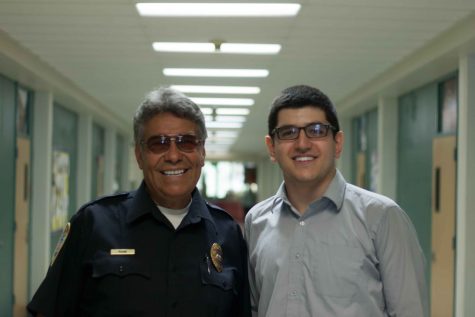
INTERESTS/HOBBIES: Gaming, Reading, movies.
EXTRACURRICULAR ACTIVITIES: KATS, Mock Trial.
THREE WORDS TO DESCRIBE ME ARE: I killed someone.
IN...



